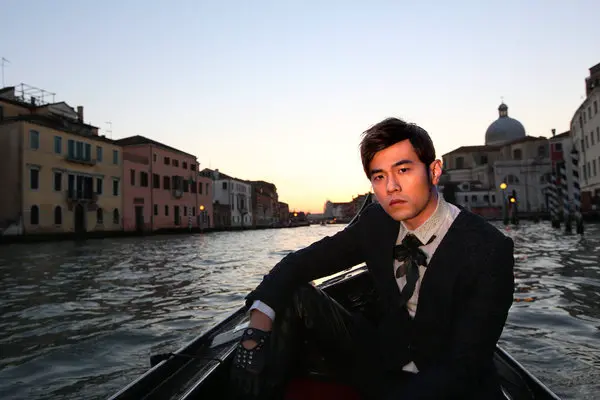As the entertainment industry booms in China, celebrities are becoming an integral part ofpeople's cultural life, and even in education. As more and more life stories of pop stars arecited as examples in papers in schools, people's attitude on the matter is becomingincreasingly divided.
Exam papers
It's been a while that celebrities started appearing in exam questions and the trend seems tobe growing. Musician Jay Chou, actress Yang Mi, actor Du Tao, and even South Koreandrama My Love From The Star have all made their appearance in school exam papers, andthe list of celebrities is long.
For example, Yang Mi once said in the public that "when you wonder at the sparkling lightcoming from the fireflies, you haven’t seen their wings striking to swing behind their bodies,"referring to the enormous effort she paid in order to stand out in acting. This sentence laterbecame part of the background material in exams, based on which students were required towrite an article. Meanwhile, lyrics of Jay Chou’s songs are also used as exam questions andeven textbook content in different regions of China.
The view of the public is divided. Many are happy to see the changes that keep pace with thetimes and make education more interesting, while others argue that entertainment hasnothing to do with education and that such moves would push teenagers to spend more timeon entertainment and pop culture and less on studies.
Prime examples
And it's not just exam papers. Popular TV dramas and stars have also become publicexamples for safety education. The recent Chinese TV hit Ode to Joy, a drama telling lifestories of five girls in Shanghai, is one of them. In the first episode, the five leading charactersare trapped in an elevator and one of them presses each floor button in order to stop theelevator from falling, which earned a slew of likes on social media and was cited as a goodexample for self aid.
Meanwhile, negative examples for public teaching are also commonly seen. In the samedrama, one protagonist parks her car in the middle of a road in a rage before her boyfrienddrives it away, which drew critics from Hunan Provincial Public Security. The security officerspointed it out as a wrong-doing in their official Weibo account, China's equivalent to Twitter,and stressed that the behavior shown in the TV plot will cause traffic congestion or even fatalaccident, calling the public not to follow the example.
Another incident that has been cited is of actor Wang Kai taking a selfie on Weibo with himsitting inside a car, with the caption reading "love your life and do not use your phone whendriving." The post was immediately retweeted by local security forces reminding him and thepublic to wear the seatbelt; Hong Kong actor and singer Aaron Kwok was also tagged by thesecurity officers as a wrong example on social media when he posted a picture showing himholding his girlfriend's hand and driving with the other hand.
The increasing number of such examples and discussions reflect the rise of social power andinfluence of celebrities, which is hard to be taken as simply good or bad. But one thing is forsure - with power comes responsibility. Maybe it's time for the stars to think how to set up agood example for their fans, not only in their work, but also in real life, isn't it?
(CHINADAILY)
 简体中文
简体中文



